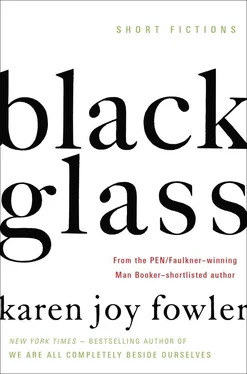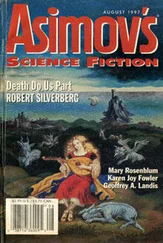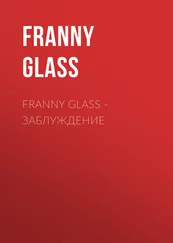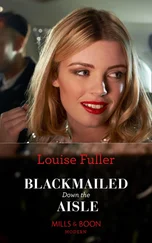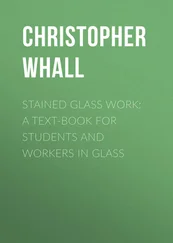I long to undress Anne and examine her own Legs but have not yet had a Moment to do so. Dearest Annie, who once bubbled like a Brook, has fallen silent and sucks on her Fingers. She hides in the Stables, preferring Beasts to People.
William was able to govern his Temper well enough when Johnny was at Home. He is, of course, within his Rights and so thinks us defenseless against him. He will find otherwise. A Man can be engaged for almost any Purpose, as I have had every Occasion to learn.
It is a wicked World. Your Father told me so when he was most in a Position to know. The more I see of it, the more I wonder at your Desire to see so much of it. We are a wicked Race, we People, and it is better to be acquainted with as few of us as possible.
Do I sound here like your own Mary? I feel quite altered. Johnny has gone to Sea at last and all is Desolation. He sailed for the Indies in September.
I once saw something in William’s Face that surprized me. That something was your Face. And I thought, then, of your Father and wondered if he had ever told you of the World’s Wickedness, had ever made you feel a Part of it. It has always been too easy to persuade you, my Love. All these Years, all these Voyages — were you protecting us from yourself?
If you will be persuaded by someone, let it be me. First, I would have you believe that every Man and every Woman has a Kingdom of Evil somewhere in their Hearts. Yours is no bigger than some, and smaller than most. You are a Good Man and we are not afraid of you.
Second, you love us. Confess it, you are haunted by us. You can never go far enough to escape. We fill your Thoughts in spite of yourself. You mold your Memories about us, as if you had been here all along.
And now I will turn my Persuasions on myself; I will reason myself out of this Morbid Humour. My Life has not been a hard one. Perhaps I might have asked to be sheltered more. Perhaps I might have asked to live an Arm away from the Wicked World.
But I did not ask this. I asked to see the World, just as you did, so I will make no Complaint at seeing it. There are far worse things to be endured than an absent Husband, as Betty brings me constant Proof. And I am finished forever with blaming you for your Absence. I am hard at work to not blame you for Johnny’s.
Indeed, I pray for your Return. Come Home to us now, surprize us just when everyone has said that this Time you are surely lost. Let us embrace again. We will find a way to live together, you and I, your Children and Grandchildren. Stay with us as long as you will, a valued Guest.
And then go. We have no Wish to hold you. We have become the People you would have us be, and you need never fear hurting us again. We will rejoice at your Coming; your Going will cause us no Moment of Suffering. More than this, I think, no Man can ask of his Family.
As always,
Mary
Einstein received the first letter in the afternoon post. It had traveled in bags and boxes all the way from Hungary, sailing finally through the brass slit in Einstein’s door. Dear Albert, it said. Little Lieserl is here. Mileva says to tell you that your new daughter has tiny fingers and a head as bald as an egg. Mileva says to say that she loves you and will write you herself when she feels better. The signature was Mileva’s father’s. The letter was sent at the end of January, but arrived at the beginning of February, so even if everything in it was true when written, it was entirely possible that none of it was true now. Einstein read the letter several times. He was frightened. Why could Mileva not write him herself? The birth must have been a very difficult one. Was the baby really as bald as all that? He wished for a picture. What kind of little eyes did she have? Did she look like Mileva? Mileva had an aura of thick, dark hair. Einstein was living in Bern, Switzerland, and Mileva had returned to her parents’ home in Titel, Hungary, for the birth. Mileva was hurt because Einstein sent her to Hungary alone, although she had not said so. The year was 1902. Einstein was twenty-two years old. None of this is as simple as it sounds, but one must start somewhere even though such placement inevitably entails the telling of a lie.
Outside Einstein’s window, large star-shaped flakes of snow swirled silently in the air like the pretend snow in a glass globe. The sky darkened into evening as Einstein sat on his bed with his papers. The globe had been shaken and Einstein was the still ceramic figure at its swirling heart, the painted Father Christmas. Lieserl. How I love her already, Einstein thought, dangerously. Before I even know her, how I love her.
• • •
THE SECOND LETTER arrived the next morning. Liebes Schatzerl , Mileva wrote. Your daughter is so beautiful. But the world does not suit her at all. With such fury she cries! Papa is coming soon, I tell her. Papa will change everything for you, everything you don’t like, the whole world if this is what you want. Papa loves Lieserl. I am very tired still. You must hurry to us. Lieserl’s hair has come in dark and I think she is getting a tooth. Einstein stared at the letter.
A friend of Einstein’s will tell Einstein one day that he, himself, would never have the courage to marry a woman who was not absolutely sound. He will say this soon after meeting Mileva. Mileva walked with a limp, although it is unlikely that a limp is all this friend meant. Einstein will respond that Mileva had a lovely voice.
Einstein had not married Mileva yet when he received this letter, although he wanted to very badly. She was his Lieber Dockerl, his little doll. He had not found a way to support her. He had just run an advertisement offering his services as a tutor. He wrote Mileva back. Now you can make observations, he said. I would like once to produce a Lieserl myself, it must be so interesting. She certainly can cry already, but to laugh she’ll learn later. Therein lies a profound truth. On the bottom of the letter he sketched his tiny room in Bern. It resembled the drawings he would do later to accompany his gedanken, or thought experiments, how he would visualize physics in various situations. In this sketch, he labeled the features of his room with letters. Big B for the bed. Little b for a picture. He was trying to figure a way to fit Mileva and Lieserl into his room. He was inviting Mileva to help.
In June he will get a job with the Swiss Civil Service. A year after Lieserl’s birth, the following January, he will marry Mileva. Years later when friends ask him why he married her, his answer will vary. Duty, he will say sometimes. Sometimes he will say that he has never been able to remember why.
• • •
A THIRD LETTER arrived the next day. Mein liebes böse Schatzerl! it said. Lieserl misses her Papa. She is so clever, Albert. You will never believe it. Today she pulled a book from the shelf. She opened it, sucking hard on her fingers. Can Lieserl read? I asked her, joking. But she pointed to the letter E, making such a sweet, sticky fingerprint beside it on the page. E, she said. You will be so proud of her. Already she runs and laughs. I had not realized how quickly they grow up. When are you coming to us? Mileva.
His room was too small. The dust collected over his books and danced in the light with Brownian-like movements. Einstein went out for a walk. The sun shone, both from above him and also as reflected off the new snowbanks in blinding white sheets. Icicles shrank visibly at the roots until they cracked, falling from the eaves like knives into the soft snow beneath them. Mileva is a book, like you, his mother had told him. What you need is a housekeeper. What you need is a wife.
Einstein met Mileva in Zurich at the Swiss Federal Polytechnical School. Entrance to the school required the passage of a stiff examination. Einstein himself failed the General Knowledge section on his first try. She will ruin your life, Einstein’s mother said. No decent family will have her. Don’t sleep with her. If she gets a child, you’ll be in a pretty mess.
Читать дальше
